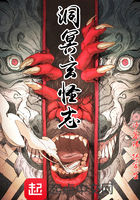THE GOVERNMENT OF THE CONVENTION
1.The activity of the Clubs and the Commune during the Convention.
During the whole of its existence the Convention was governed by the leaders of the clubs and of the Commune.
We have already seen what was their influence on the preceding Assemblies.It became overwhelming during the Convention.The history of this latter is in reality that of the clubs and the Commune which dominated it.They enslaved, not only the Convention, but also all France.Numerous little provincial clubs, directed by that of the capital, supervised magistrates, denounced suspects, and undertook the execution of all the revolutionary orders.
When the clubs or the Commune had decided upon certain measures they had them voted by the Assembly then and there.If the Assembly resisted, they sent their armed delegations thither--that is, armed bands recruited from the scum of the populace.
They conveyed injunctions which were always slavishly obeyed.
The Commune was so sure of its strength that it even demanded of the Convention the immediate expulsion of deputies who displeased it.
While the Convention was composed generally of educated men, the members of the Commune and the clubs comprised a majority of small shopkeepers, labourers, and artisans, incapable of personal opinions, and always guided by their leaders--Danton, Camille Desmoulins, Robespierre, &c.
Of the two powers, clubs and insurrectionary Commune, the latter exercised the greater influence in Paris, because it had made for itself a revolutionary army.It held under its orders forty-eight committees of National Guards, who asked nothing more than to kill, sack, and, above all, plunder.
The tyranny with which the Commune crushed Paris was frightful.
For example, it delegated to a certain cobbler, Chalandon by name, the right of surveillance over a portion of the capital--a right implying the power to send to the Revolutionary Tribunal, and therefore to the guillotine, all those whom he suspected.
Certain streets were thus almost depopulated by him.
The Convention struggled feebly against the Commune at the outset, but did not prolong its resistance.The culminating point of the conflict occurred when the Convention wished to arrest Hebert, the friend of the Commune, and the latter sent armed bands who threatened the Assembly and demanded the expulsion of the Girondists who had provoked the measure.Upon the Convention refusing the Commune besieged it on June 2, 1798, by means of its revolutionary army, which was under the orders of Hanriot.Terrified, the Assembly gave up twenty-seven of its members.The Commune immediately sent a delegation ironically to felicitate it upon its obedience.
After the fall of the Girondists the Convention submitted itself completely to the injunctions of the omnipotent Commune.The latter decreed the levy of a revolutionary army, to be accompanied by a tribunal and a guillotine, which was to traverse the whole of France in order to execute suspects.
Only towards the end of its existence, after the fall of Robespierre, did the Convention contrive to escape from the yoke of the Jacobins and the Commune.It closed the Jacobin club and guillotined its leading members.
Despite such sanctions the leaders still continued to excite the populace and hurl it against the Convention.In Germinal and Prairial it underwent regular sieges.Armed delegations even succeeded in forcing the Convention to vote the re-establishment of the Commune and the convocation of a new Assembly, a measure which the Convention hastened to annul the moment the insurgents had withdrawn.Ashamed of its fear, it sent for regiments which disarmed the faubourgs and made nearly ten thousand arrests.
Twenty-six leaders of the movement were put to death, and six deputies who were concerned in the riot were guillotined.
But the Convention did not resist to any purpose.When it was no longer led by the clubs and the Commune it obeyed the Committee of Public Safety and voted its decrees without discussion.
``The Convention,'' writes H.Williams, ``which spoke of nothing less than having all the princes and kings of Europe brought to its feet loaded with chains, was made prisoner in its own sanctuary by a handful of mercenaries.''
2.The Government of France during the Convention--The Terror.
As soon as it assembled in 1792 the Convention began by decreeing the abolition of royalty, and in spite of the hesitation of a great number of its members, who knew that the provinces were royalist, it proclaimed the Republic.
Intimately persuaded that such a proclamation would transform the civilised world, it instituted a new era and a new calendar.The year I.of this era marked the dawn of a world in which reason alone was to reign.It was inaugurated by the trial of Louis XVI., a measure which was ordered by the Commune, but which the majority of the Convention did not desire.
At its outset, in fact, the Convention was governed by its relatively moderate elements, the Girondists.The president and the secretaries had been chosen among the best known of this party.Robespierre, who was later to become the absolute master of the Convention, possessed so little influence at this time that he obtained only six votes for the presidency, while Petion received two hundred and thirty-five.
The Montagnards had at first only a very slight influence.Their power was of later growth.When they were in power there was no longer room in the Convention for moderate members.
Despite their minority the Montagnards found a way to force the Assembly to bring Louis to trial.This was at once a victory over the Girondists, the condemnation of all kings, and a final divorce between the old order and the new.
To bring about the trial they manoeuvred very skilfully, bombarding the Convention with petitions from the provinces, and sending a deputation from the insurrectional Commune of Paris, which demanded a trial.















